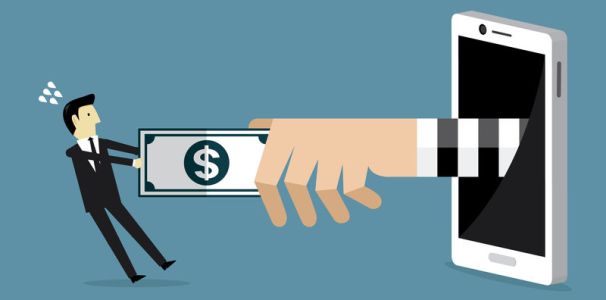
Scammers spoofing phone numbers of law enforcement agencies at all time high

Last year, according to the Internet Crimes Complaint Center (IC3), more than 12,000 people nationwide reported being victims of government impersonation scams. Those victims were scammed out of more than $112,000,000 – many times turning over their entire life savings to the scammers.
One scam is known as the Government Impersonation Fraud and is a crime in which scammers impersonate government officials to collect money. The scammers often threaten to extort victims with physical or financial harm or the release of sensitive data about their intended victim. In some cases, the intended target may be told there is a federal warrant for their arrest, which would be dismissed in exchange for immediate payment to the caller.
The caller will many times know the full name, extensive background, birth-date, family members, and/or personal cell phone number of the intended victim. There are several ways individuals with criminal intentions can obtain this information. However, many times the victims themselves have disclosed their personal information online.
These scams are happening nationwide.
A few more examples:
The FBI Charlotte Field Office is warning the public of a recent phone scam that spoofs, or fraudulently displays, the FBI’s real telephone number on the victim’s caller ID. The scammer impersonates a government official and uses intimidation tactics, such as the threat of arrest, to demand payment of money purportedly owed to the government. These claims are false. The calls are not from the FBI. The FBI does not call private citizens to request money or threaten arrest.
FBI Charlotte has seen its main number, 704-672-6100, spoofed in this manner recently, as well as the numbers of its Resident Agencies, throughout North Carolina. Other FBI offices across the country have also seen this crime recently.
The Prince George Police Department in Maryland recently had to warn residents of a phone scam that reaches out to potential victims using the department’s phone number.
During the call, the resident’s caller ID will display the Prince George Police Department’s main telephone number (804) 733-2773. The individual reportedly identifies themselves as a U.S. Marshal calling victims to advise that he or she has an active warrant but, can avoid arrest by paying a fine immediately. The individual requests the victim to pay fines by supplying gift cards.
These calls are not from the Prince George Police Department, and that office does not call anyone asking for information in this manner. The PGPD urges the public not to divulge personal or financial information to unknown callers.
Residents with questions or concerns about phone scams can contact the Prince George Police Department at 804-733-2773.

To avoid becoming the victim of Government Impersonation Fraud and other scams:
- Always be suspicious of unsolicited phone calls.
- Never give money or personal information to someone with whom you don’t have ties and did not initiate contact.
- Remember a government agency or legitimate business will never ask you to pay a fee or a fine using a third-party form of payment, such as a gift card.
- Take the time to educate yourself about any offer you receive; scammers count on your lack of knowledge.
- Trust your instincts: if an unknown caller makes you uncomfortable or says things that don’t sound right or sound too good to be true, hang up.
More information about government impersonation schemes and other online frauds can be found at www.fbi.gov. The FBI strongly encourages anyone contacted by a caller who says they are with the FBI or any government agency to verify the information with their local FBI Field Office or the government agency in question.
Additionally, the public should be aware that other law enforcement agencies in our community, such as the Drug Enforcement Administration (DEA), U.S. Social Security Administration, and local law enforcement agencies are also being impersonated using similar tactics as described above. If you receive a call of this nature, please contact those government agencies’ offices directly and verify that a representative of their agency contacted you in order to avoid being victimized.
Individuals who have been victimized by this type of scam are encouraged to file a complaint with the FBI’s Internet Crime Complaint Center by visiting https://www.ic3.gov.
Posted by: Richard Webster, Ace News Today / Follow Richard on Facebook and Twitter






